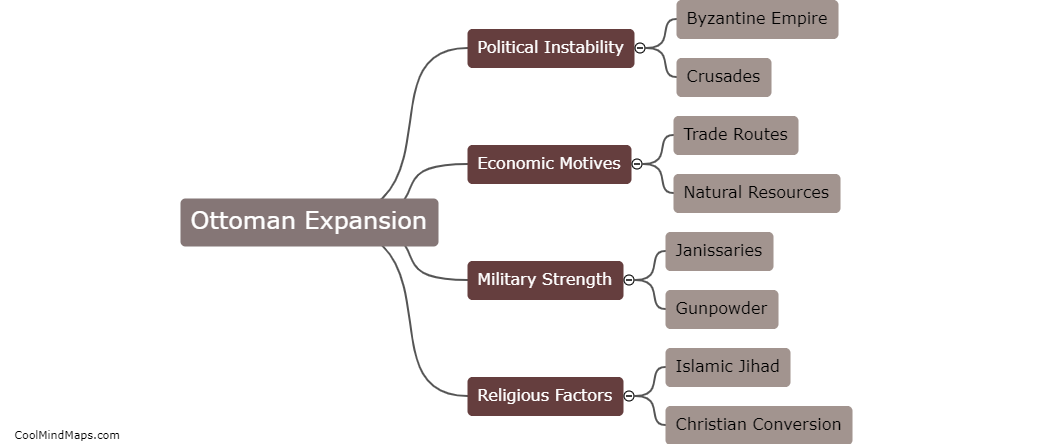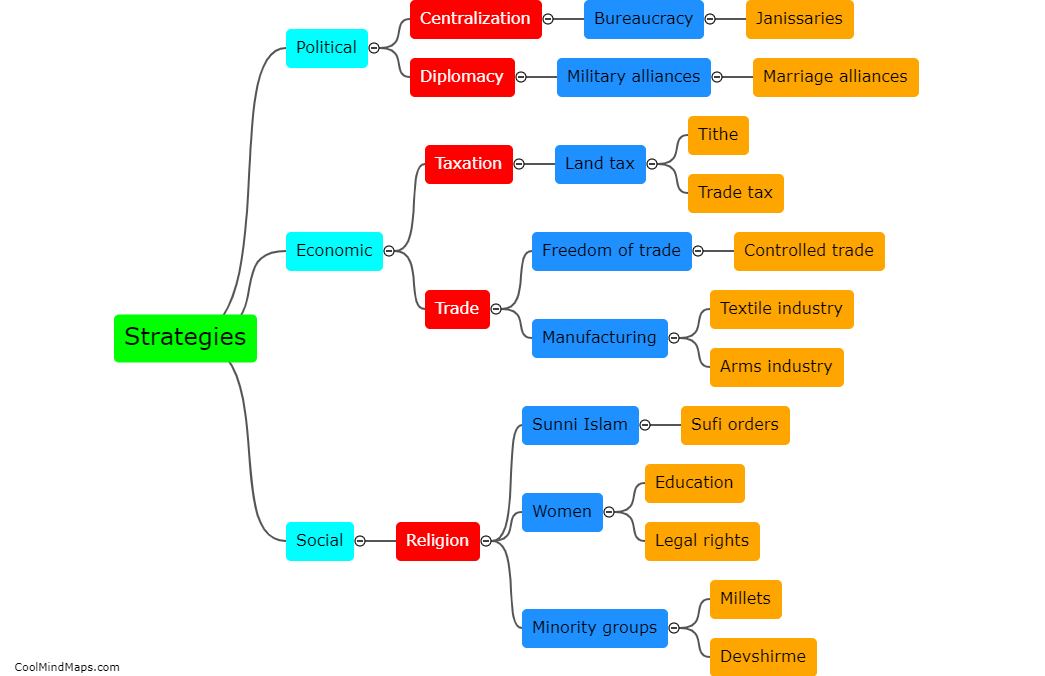What were the economic impacts of Ottoman rule in Balkans?
During Ottoman rule in the Balkans, the economy underwent significant changes. The Ottomans introduced a centralized system of taxation and trade, which helped to increase revenue and stimulate trade throughout the region. They also established a sophisticated bureaucratic system, providing economic stability and order. Ottoman rulers encouraged the growth of crafts and industry, particularly textile production, which boosted the local economy and produced a range of goods for export. However, the prolonged Ottoman rule had negative impacts, such as exploiting farmers and artisans which led to an unequal distribution of wealth. The Ottomans also failed to adequately invest in infrastructure, education, and technology, which led to a decline in the region's economic development, and played a major role in the lagging economy of Balkans during the early modern period.

This mind map was published on 22 June 2023 and has been viewed 139 times.











